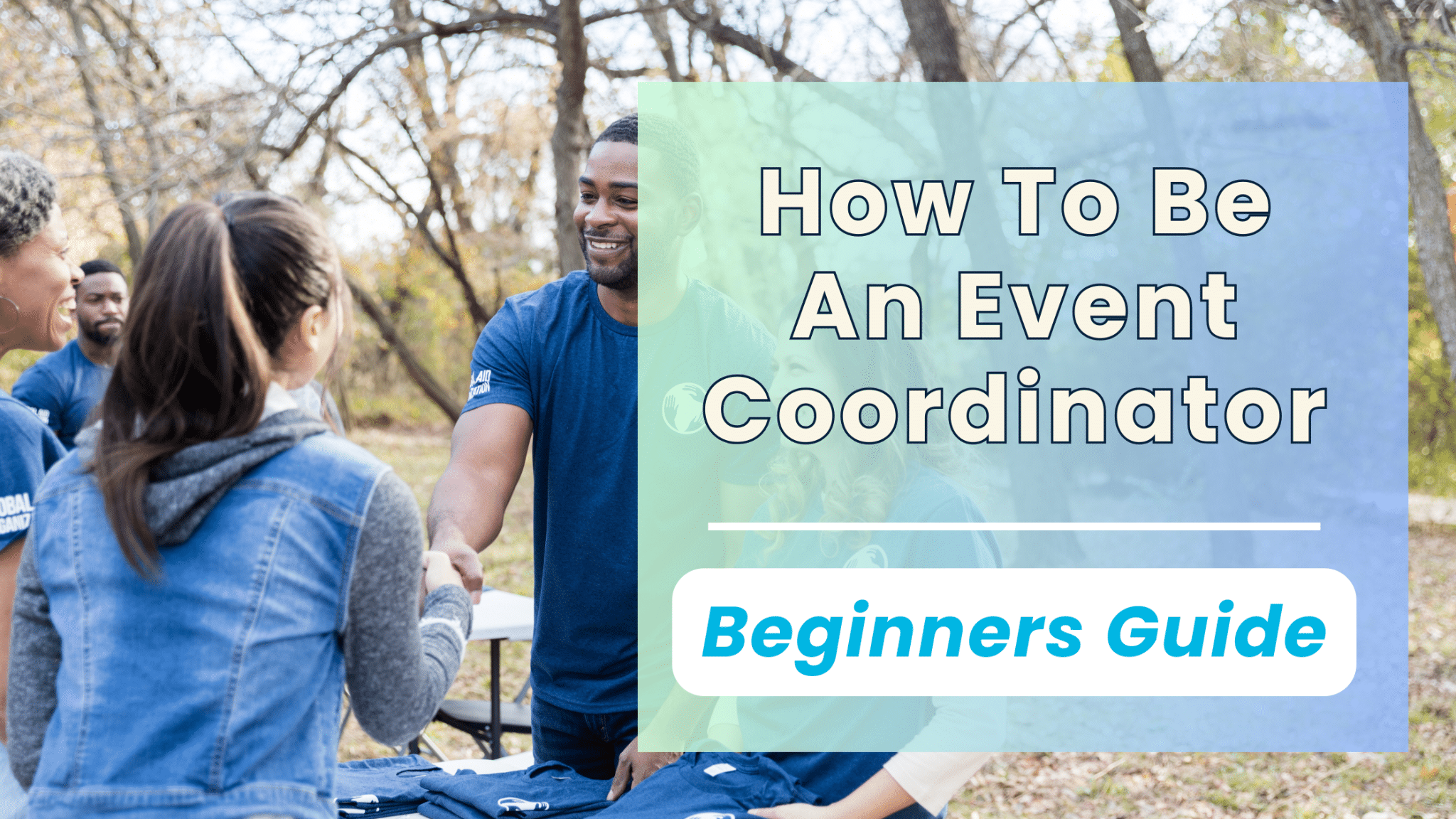Welcome to your first step into the dynamic and exciting world of event coordination! Whether it’s the allure of creating memorable experiences or the thrill of managing the perfect event, starting a career in event planning is both rewarding and challenging. In this comprehensive guide, we will embark on a journey through the essentials of becoming an event coordinator, tailored specifically for those of you who are just beginning to explore this vibrant industry.
First, we’ll demystify the role of an event coordinator by breaking down the duties, responsibilities, and tasks that define this pivotal position. Understanding the basics is the foundation upon which you can build a successful career.
Next, we delve into the core of what makes an event coordinator exceptional. Developing key skills and nurturing the right qualities are not just recommended; they’re essential to thrive. From impeccable organizational skills to an eye for detail and beyond, we’ll explore what it takes to stand out in the crowd.
Then, it’s time to get practical. We’ll guide you through the initial steps to kickstart your career, from landing your first entry-level job to the secrets of making a lasting impression in the industry.
Building a robust network and establishing your presence won’t just be a suggestion—it will become your mantra. Connecting with vendors, suppliers, and fellow coordinators will pave the way for success.
Lastly, the journey doesn’t end with landing a job. Staying ahead of the game through continuous education and professional development is crucial in this ever-evolving industry.
By the end of this guide, not only will you be equipped with the knowledge to embark on your exciting new career, but you will also be inspired to embrace the journey with confidence and enthusiasm. The path to becoming a successful event coordinator is filled with opportunities to learn, grow, and excel. Let’s get started on this promising adventure together!
Step 1: Understanding the Basics – What Does an Event Coordinator Do?
This position is the backbone of successful events, weaving together meticulous planning, creative vision, and flawless execution. Let’s break down what lies at the heart of this dynamic role.
Event Planner Duties: The Blueprint of Success
At its core, an event planner is responsible for bringing visions to life. From intimate gatherings to grandiose galas, they craft the blueprint of every event. This involves initial consultations with clients to understand their needs, preferences, and budget. With this information in hand, event planners develop event concepts, select venues, and design the event layout. They’re the architects of the event world, drawing the first lines of what will eventually become a memorable experience.
Event Coordinator Responsibilities: The Execution Experts
While planners sketch the big picture, event coordinators focus on the fine details that ensure the event runs smoothly. Their responsibilities include coordinating with vendors, managing timelines, and overseeing logistics on the day of the event. They’re the maestros, orchestrating each element to ensure harmony. From ensuring the catering arrives on time to managing the event schedule, coordinators keep the wheels turning behind the scenes.
Tasks of an Event Coordinator: A Day in the Life
A day in the life of an event coordinator is as varied as the events themselves. Tasks can range from negotiating with suppliers, managing budgets, and liaising with clients to conducting site inspections, handling registration processes, and solving last-minute challenges. Flexibility and adaptability are key, as no two days are ever the same. Coordinators are the problem-solvers, ready to turn potential chaos into seamless execution.
In this role, communication is king. An event coordinator must be an adept communicator, capable of conveying ideas clearly to clients, vendors, and team members. They also need to be excellent listeners, able to understand and incorporate feedback to meet and exceed expectations.
Moreover, the event coordinator’s job doesn’t end when the event does. Post-event responsibilities include gathering feedback, evaluating the event’s success, and conducting financial reconciliations. This reflective phase is essential for continuous improvement and future success.
As we peel back the layers of the event coordinator’s role, it becomes clear that this career is both challenging and rewarding. It’s a profession that requires a passion for events, a dedication to service, and a commitment to excellence. If you’re ready to dive into this world, keep reading as we explore how to develop the key skills and qualities that will set you on the path to success.
Step 2: Developing Key Skills and Qualities Required to Succeed in Event Coordination
In the world of event coordination,
every detail matters,
and your approach can turn a good event into an unforgettable experience.
The Blend of Skills and Qualities:
To excel, an event coordinator needs a dynamic mix of skills and personal qualities. It’s not just what you can do, but also who you are that counts.
Organizational Mastery:
Being organized is not just a skill; it’s your lifeline.
From timelines to budgets, everything must be meticulously managed.
Creative Vision:
Creativity fuels innovation in event planning.
It’s about painting the big picture and filling it with vibrant details that captivate and delight.
Unflappable Under Pressure:
Events are high-pressure environments.
Staying calm and collected, no matter what, ensures you can tackle any challenge head-on.
Exceptional Communication:
Clear, concise, and persuasive communication is key.
It bridges the gap between vision and reality, ensuring everyone is on the same page.
Adaptability:
No event goes exactly to plan.
Being able to pivot and adapt ensures you’re always ready for the unexpected.
To distill these insights into actionable tips, here’s a quick bullet point guide:
- Organize relentlessly. Use tools and systems to keep track of everything.
- Foster creativity. Regularly seek inspiration to keep ideas fresh and exciting.
- Cultivate calmness. Develop strategies to maintain composure under stress.
- Hone your communication. Practice clear, impactful ways to convey messages.
- Embrace change. View every hiccup as an opportunity to improve and innovate.
By focusing on these key areas, you set a solid foundation for success in the fast-paced, ever-changing world of event coordination. Each skill and quality you develop adds to your arsenal, making you not just a coordinator, but a creator of memorable experiences.
In the journey of event coordination, these skills and qualities are your compass and map. They guide you through the complexities and challenges, ensuring that every event you touch turns into a masterpiece of planning and execution.
As we move forward, remember that these attributes are not static; they evolve as you do. Continuous learning and self-improvement are the keys to not just starting your career in event planning but thriving in it.
Step 3: Getting Started – How to Kickstart Your Career as an Event Coordinator
Launching a career in event coordination is akin to planning your first big event – it requires research, preparation, and a dash of courage. Here’s how you can pave your way into the industry:
1. Education and Training:
While a formal degree in event management or a related field isn’t always required, it can give you a strong foundation and a competitive edge. Look for programs that offer practical experience and networking opportunities.
- Tip: If you’re transitioning from another career, short courses or certifications in event planning can also provide a solid start.
2. Gain Experience:
Experience is gold in the event planning industry. Volunteer or intern at local events to get a feel for the work and start building your portfolio.
- Opportunities to look for: Festivals, conferences, weddings, and corporate events are great starting points.
- Remember: Every task, no matter how small, teaches you something valuable.
3. Build a Portfolio:
As you gain experience, document your projects. A well-curated portfolio showcases your skills, creativity, and versatility to potential employers or clients.
- Include: Photos, testimonials, and a brief overview of your role in each event.
4. Network, Network, Network:
The event planning industry thrives on connections. Attend industry meetups, join professional organizations, and connect with seasoned planners online.
- Why it matters: Networking can lead to mentorship opportunities, job leads, and valuable industry insights.
5. Start Small:
Your first job in event planning might not be your dream role, but it’s a stepping stone. Entry-level positions or assistant roles offer invaluable hands-on experience.
- Look for roles such as: Event Assistant, Venue Coordinator, or Administrative Assistant in an event planning firm.
6. Stay Curious and Keep Learning:
The event industry is always evolving, with new trends and technologies emerging. Stay ahead of the curve by attending workshops, webinars, and conferences.
- Continuous learning: It not only enhances your skills but also shows potential employers your dedication to the profession.
7. Showcase Your Skills on Social Media:
In today’s digital age, your online presence can significantly impact your career. Use platforms like Instagram, LinkedIn, or a personal blog to share your event planning adventures, insights, and achievements.
- Benefit: A strong online presence can attract potential employers or clients and establish you as a thought leader in the industry.
Starting your career in event planning is an exciting journey that requires patience, persistence, and a proactive approach. By gaining the right education, building experience, and networking, you’ll set the stage for a successful career in this dynamic field.
Remember, every event, big or small, is an opportunity to learn, grow, and move one step closer to your dream of becoming a successful event coordinator. As you navigate this path, embrace the challenges and celebrate the victories, for they are all part of the rich tapestry of your budding career in event planning.
Step 4: Building Your Network and Establishing Your Presence in the Events Industry
Getting ahead in the events industry is a lot about who you know, and even more about who knows you. It’s like building a support system that not only gets you through the door but also cheers you on as you navigate through your career. Here’s some friendly advice on how to build that network and make a name for yourself in the world of event coordination.
Networking: The Simple Truth
Think of networking not as a strategy but as building a community. It’s about forming connections that are genuine and beneficial for everyone involved. Here’s how to get started:
Start with What You Know
Attending industry events might seem like a no-brainer, but it’s about more than just showing up. It’s about engaging, asking questions, and really listening to what others have to say. Workshops, conferences, and local meet-ups are great places to start.
Use Social Media Wisely
Platforms like LinkedIn and Instagram are more than just spaces to showcase your work; they’re communities. Engage with content from peers and industry leaders, share your thoughts, and contribute to conversations. Your genuine interest and insights can make you stand out.
Don’t Underestimate the Power of Volunteering
Volunteering can put you right in the midst of potential mentors and peers. It’s hands-on experience, yes, but also a chance to show your commitment and passion for event planning.
It’s About Giving, Not Just Taking
Whenever you meet someone new, think about how you can help them too. Maybe you’ve read an article they’d love or know someone they should meet. Networking is a two-way street.
Keep Those Connections Warm
After meeting someone, don’t just add them on LinkedIn and forget about them. A quick message or sharing something relevant shows you’re interested in keeping the conversation going.
A Personal Brand That Reflects You
As you network, you’re also putting yourself out there. Think about what you want people to remember about you. Be consistent in how you present yourself, both online and offline.
And a Tip from the Inside
If you’re looking to get connected in the event planning world, speaking to a merchandising expert can be a game-changer. They often have a wide network and can provide insights into different aspects of the industry. You might want to reach out to someone like the folks at info@jnpmerchandising.com for advice or potential connections. They can offer a unique perspective on how event merchandising intersects with coordination and planning.
Networking Is Just Part of the Journey
Remember, building a network doesn’t happen overnight. It’s about the little efforts, consistently made over time. Be patient, be genuine, and be ready to learn from every interaction. Networking is more than just professional growth; it’s about finding your community in the industry.
Step 5: Staying Ahead of the Game – Continuing Education and Professional Development for Event Coordinators
irst things first, let’s acknowledge that the field of event planning is always changing. What worked last year might not be as effective today. That’s why it’s crucial to stay informed and adaptable.
Courses and Certifications
A wealth of courses and certifications are available for those eager to deepen their knowledge and specialize in certain areas of event planning. From online platforms offering courses on specific aspects of event management, like digital marketing or sustainable event planning, to certifications from recognized industry organizations, there’s something for everyone.
Consider certifications that are widely respected in the industry, such as the Certified Meeting Professional (CMP) designation or the Certified Special Events Professional (CSEP) status. These can significantly boost your credibility and show potential clients or employers that you’re committed to your craft.
Look for courses that challenge you and push you out of your comfort zone. Whether it’s a class on the latest event technology, crisis management, or innovative event design, make sure you’re always learning something new.
Networking and Professional Groups
Don’t forget the power of professional groups and associations. Being part of these organizations can provide valuable learning opportunities through workshops, webinars, and conferences.
Join professional groups like the Meeting Professionals International (MPI) or the International Live Events Association (ILEA). These communities offer not only networking opportunities but also a plethora of resources for professional development.
Attend industry conferences and workshops, even those that seem only tangentially related to event planning. The broader your understanding of related fields, the more innovative and effective you can be in your role.
Peer Learning and Mentorship
Learning from your peers and those more experienced in the industry can provide insights you won’t find in any textbook.
Seek out a mentor who has been in the industry for a while. Their experience and advice can be invaluable as you navigate your career path.
Form study groups or join online forums with other event professionals. Discussing current trends, challenges, and solutions with peers can be incredibly enlightening.
Keeping an Eye on Trends
Stay informed about the latest trends in the events industry. This could mean anything from new event technologies to changes in consumer behavior or expectations.
Follow industry blogs and publications to keep up with the latest news and trends.
Experiment with new ideas in your events whenever possible. This not only keeps your events fresh and exciting but also keeps you learning and growing as a professional.
Remember, Professional Development is a Journey
Embrace the journey of professional development with an open mind and a proactive attitude. The more you invest in your growth, the more you’ll find opportunities to innovate, excel, and lead in the field of event coordination.
The path to becoming a top-tier event coordinator is marked by continuous learning, adaptation, and a relentless pursuit of excellence. By embracing education, certification, and the wealth of resources available for professional development, you ensure that you’re not just keeping up with the industry but setting the pace.





